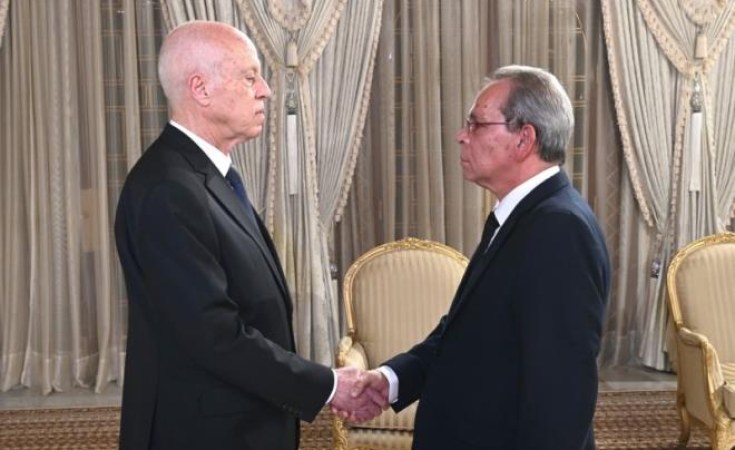Nearly 10 million Tunisians are gearing up to vote on Sunday in presidential elections dominated by incumbent leader Kais Saied, whose rule has been marked by accusations of authoritarianism.
Critics say the outcome of the vote is a foregone conclusion, with no real electoral rallies or debates and very few campaign posters, most of which feature only Saied.
International organisations like the Crisis Group have raised concerns about the election, while Vincent Geisser, a researcher at France's National Centre for Scientific Research (CNRS), told RFI the result would be a demonstration of the president's autocratic rule.
Saied's approach to power is highly personal and differs from that of former President Ben Ali, who at least tried to legitimise his rule, says Geisser - who is also director of the Institute for Research and Studies on the Arab and Muslim Worlds (Iremam).
"Saied doesn't even bother," he says.
Candidate jailed
In the last week of the campaign, one of the election's three candidates was sentenced to 12 years in prison just five days before the election.
Ayachi Zammel, a former MP who leads the opposition Azimoun party, was jailed on charges of falsifying documents, including voter signatures on his candidacy paperwork.
"The verdict is unfair and a farce," said Abdessattar Massoudi, Zammel's lawyer.
Zammel had already received two prior prison sentences this year, but despite his imprisonment, he is still allowed to stand in the election.
However, his political future looks uncertain.
To display this content from X (Twitter), you must enable advertisement tracking and audience measurement.
Accept Manage my choices With Zammel imprisoned, only one other candidate - Zouhair Maghzaoui, also former leader of an Arab nationalist party - will challenge Saied.
However, Maghzaoui has faced criticism for his previous support of the president, and there is little enthusiasm among Saied's opponents for his candidacy.
Tunisian opposition candidate arrested amid 'dictatorial' pre-election climate
Climate of fear
The timing of Zammel's sentence comes amid growing unrest in Tunisia, where opponents accuse Saied of using the judiciary to crush dissent.
Several other high-profile opposition figures were barred from running, and protests have erupted over the arrests of political opponents, lawyers and journalists.
Tunisians, who overthrew their dictator in 2011, are planning more mass protests on Friday against what they describe as Saied's authoritarian rule.
While many people believed the fear from the Ben Ali dictatorship wouldn't come back, "Tunisians are even more afraid and cautious now", Geisser says.
Year of elections has Africa poised for political shake-up in 2024
Saied has repeatedly used accusations of conspiracy coming from abroad as an argument to silence the opposition and civil society.
According to Geisser, "anyone who interacts with foreign journalists or NGOs is seen as conspiring against the president".
Tunisians feel resigned and don't believe the opposition's promises of change, he says - adding the country's weak economy and social problems make people feel they can't fight this level of authoritarianism.
Amnesty International's research has also shown that there is a significant rollback of human rights in Tunisia, especially in the last couple of years.
The organisation told RFI it has documented six waves of arrests targeting political opponents and critics of the authorities.
Since late 2022, more than 70 people - including political opponents, lawyers, journalists, activists and human rights defenders - have been unfairly prosecuted or detained, according to its count.


